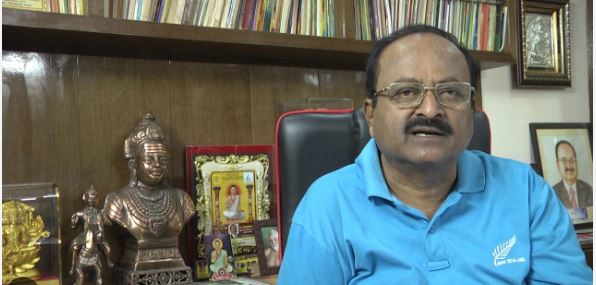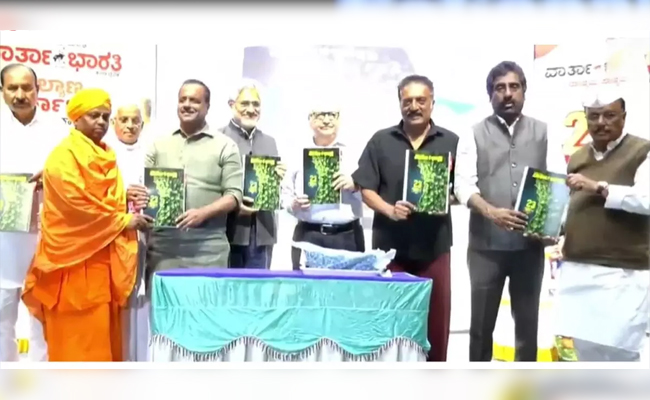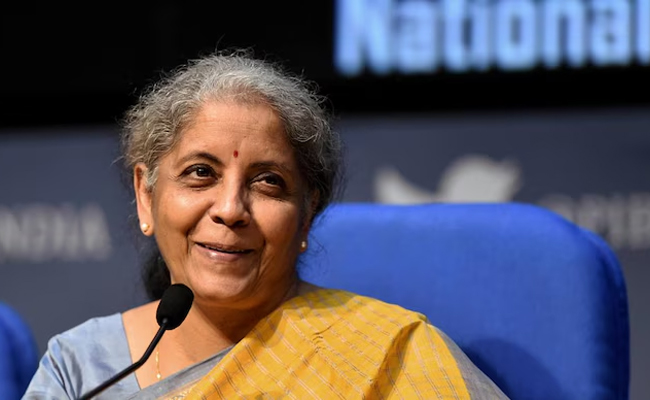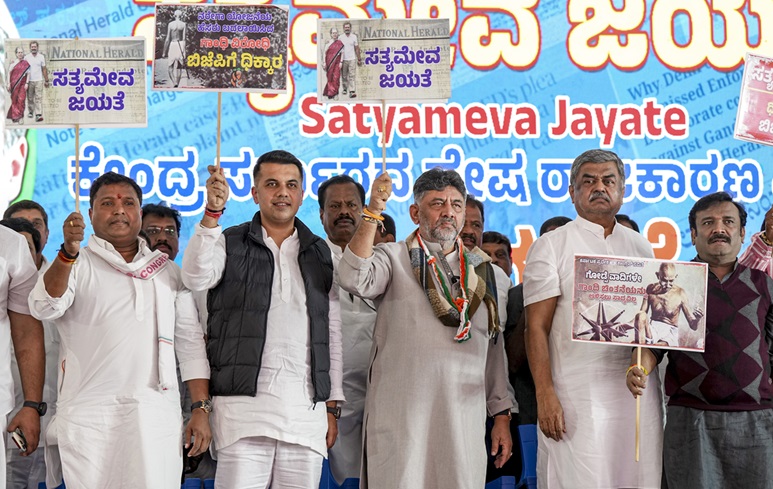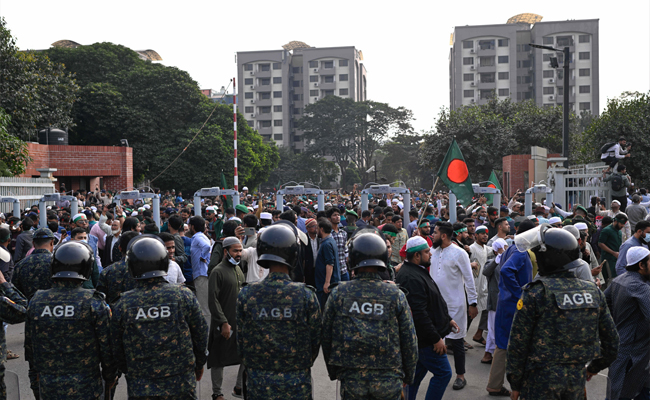Bengaluru, Dec 2: Karnataka Border Area Development Authority (KBADA) chairman Dr C Somashekhara on Friday said a team from Maharashtra government had started a drive six months ago offering incentives to set up more Marathi-medium schools inside Karnataka in and around Belagavi district.
The campaign came to a halt after the KBADA protested saying that this was unlawful.
"A delegation from Maharashtra had come to the border regions of Karnataka and started a drive by making an offer of more grants and more facilities to those schools which impart education in Marathi," Somashekhara said addressing a press conference on Friday.
He was addressing reporters after releasing a booklet 'Sadhaneya Darshana' (A peek into the achievement) on KBADA completing 12 years in the presence of Chief Minister Basavaraj Bommai.
Explaining the activities of KBADA, Somashekhara said the authority was established by the state government in 2010 to protect the interest of Kannadigas in the border regions outside Karnataka. According to him, there are 19 districts outside Karnataka that have a sizeable Kannada-speaking population.
"There are about 980 villages in 63 taluks of 19 districts where Kannadigas are living. The role of our authority is to protect their entity, culture and language. We are also doing the job of instilling confidence among them," Somashekhara said.
In the midst of a border row once again flaring up between Karnataka and Maharashtra over Belagavi, the KBADA chairman said the Maharashtra government's campaign happened six months ago.
"When we got the news that a team had conducted a survey in and around Belagavi and offered more grants to Marathi-medium schools and more incentives to the teachers, we swung into action due to which the campaign stopped," he explained.
Somashekhara said the authority along with some organisations in Belagavi protested saying that the Maharashtra delegation visiting Karnataka and opening more Marathi schools here was unlawful.
"The Maharashtra government had come inside Karnataka to open more Marathi schools in and around Belagavi. A conspiracy was hatched to offer more grants to the schools, incentives to teachers, attractive scholarship to the students and build hostels, which we have stopped," he claimed.
To a query, the retired IAS officer clarified that the team had come on its own and were not invited by the Karnataka government to do such activities.
The Maharashtra government has been demanding that Belagavi should be merged with it on the ground that the district has a sizeable Marathi population. However, the Karnataka government has been opposing it. Recently, the issue regarding Belagavi was heard in the Supreme Court as well.
The KBADA carries out its activities through the district collectors of the respective districts. To oversee the implementation of the schemes launched by the authority, a supervisory body has been set up, its chairman said.
To promote Kannada among children in the border region, KBADA is planning to deposit Rs 5,000 in the joint account of the Kannada medium student and the school. This has been conceptualised to ensure that the student studies in Kannada medium till they complete Class 10, he added.
"The student will study in the same school and will not go to any other medium school. By the time child completes 10th standard, there will be a decent amount in his account. This will attract children towards Kannada. It will benefit students as well as the school. We are planning this scheme," Somashekhara said.
Let the Truth be known. If you read VB and like VB, please be a VB Supporter and Help us deliver the Truth to one and all.
Kalaburagi: The Kalyana Karnataka edition of the Kannada daily Vartha Bharati was formally launched on Saturday at a programme held at Dr S M Pandit Rangamandir in Kalaburagi. The event also marked the release of the newspaper’s twenty-third annual special issue, a compilation of selected editorials, and the Kalyana Karnataka special supplement.
The programme was inaugurated by Karnataka Legislative Assembly Speaker U T Khader. The Kalyana Karnataka edition of Vartha Bharati was unveiled by Siddharth Varadarajan, Editor-in-Chief of The Wire.
The twenty-third annual special issue was released by multilingual actor Prakash Raj. The book compiling selected editorials of Vartha Bharati was released by B R Patil, Vice-Chairperson of the State Policy and Planning Commission and MLA from Aland. The Kalyana Karnataka special supplement was released by Rahim Khan, Minister for Municipal Administration and Haj.
ALSO READ: Kalaburagi: ‘Vartha Bharati’ Kalyana Karnataka edition launched
Chairperson of the State Waqf Board and Sajjada Nashin of the Khwaja Bande Nawaz Dargah, Hazrat Syed Mohammed Ali Al Husseini, and Kalaburagi South MLA Allamaprabhu Patil were present as chief guests.
Among the special invitees on the dais were Koraneshwara Mahaswamiji of the Tontadarya Anubhava Mantapa, Aland; Bishop Rev Fr Robert Miranda of Kalaburagi; Bhante Varajyothi of Anandur; social activist K Neela; farmers’ leader Chamarasa Mali Patil; DSS state convenor D G Sagar; and activist and singer Ambanna Arolikar.
Speaking on the occasion, Assembly Speaker U T Khader said Vartha Bharati had emerged as the voice of the weak and the voiceless in society and had earned the love, trust and confidence of people across the state. He said the newspaper had carved out a distinct identity in the media landscape and expressed happiness that it was now reaching the Kalyana Karnataka region. He added that Vartha Bharati had remained free from political pressures and inducements and expressed hope that it would continue to stand as a support system for the distressed.
B R Patil said running a newspaper in the present times was not easy, as the media sector had increasingly turned into an industry driven by profit. Amidst such challenges, he said, Vartha Bharati had maintained integrity, honesty and commitment throughout its twenty-three-year journey. He expressed confidence that the newspaper would continue on the same path. Referring to Kalaburagi, he noted that the region frequently witnessed agitations due to the large number of unresolved issues, and said Vartha Bharati should continue to bring the problems and suffering of the people to the attention of the government and contribute to finding solutions.

